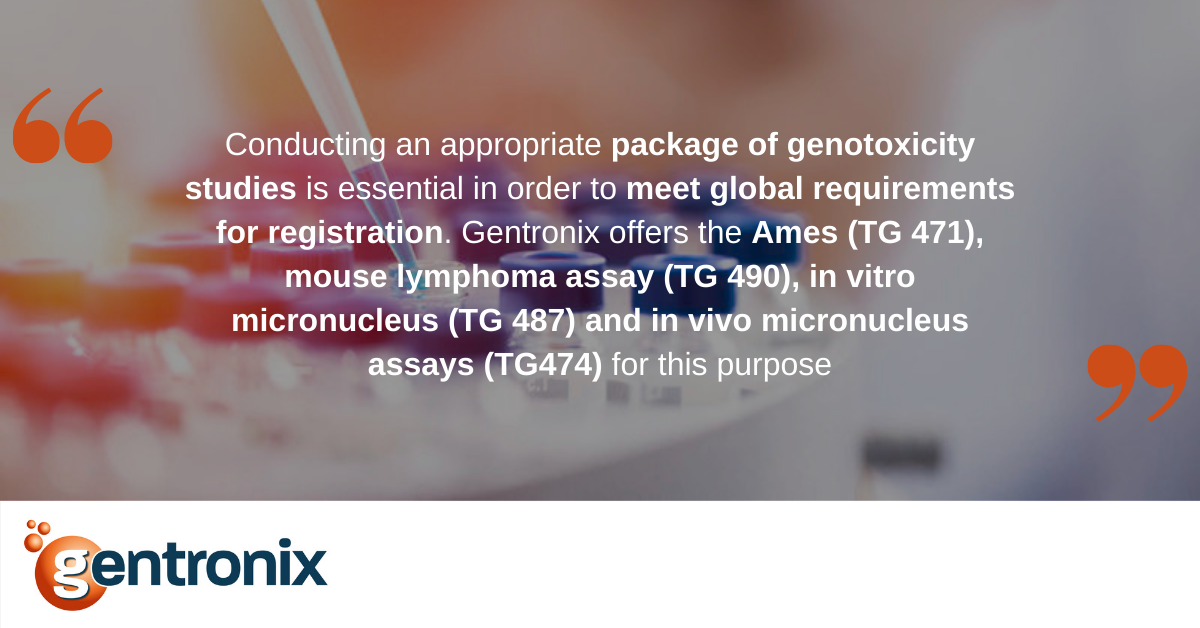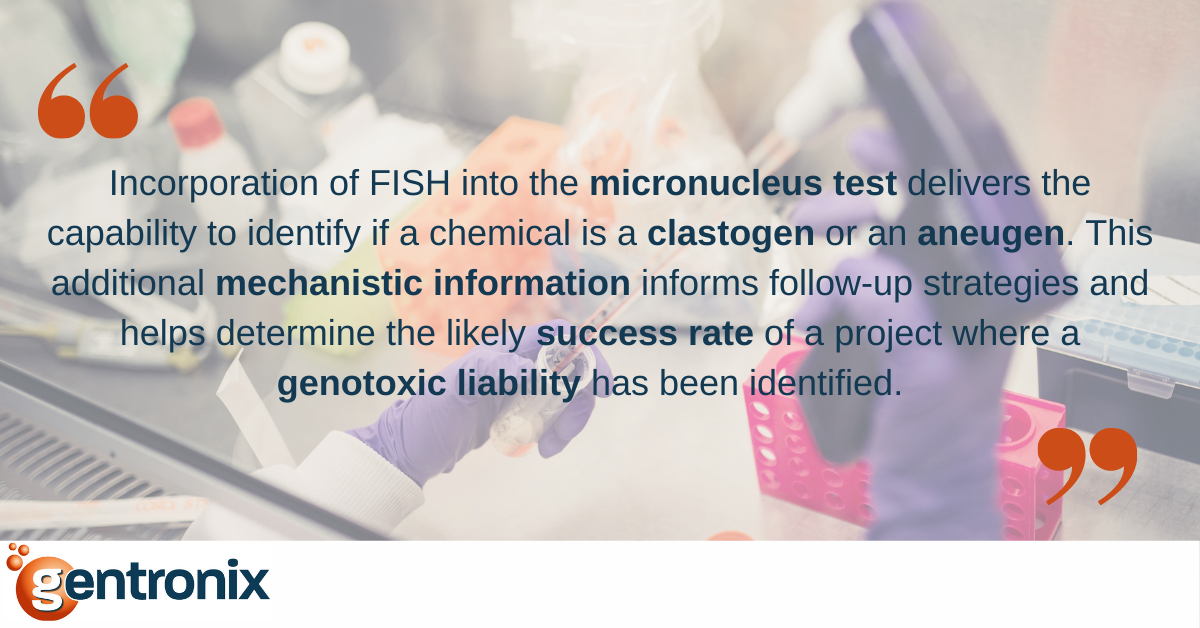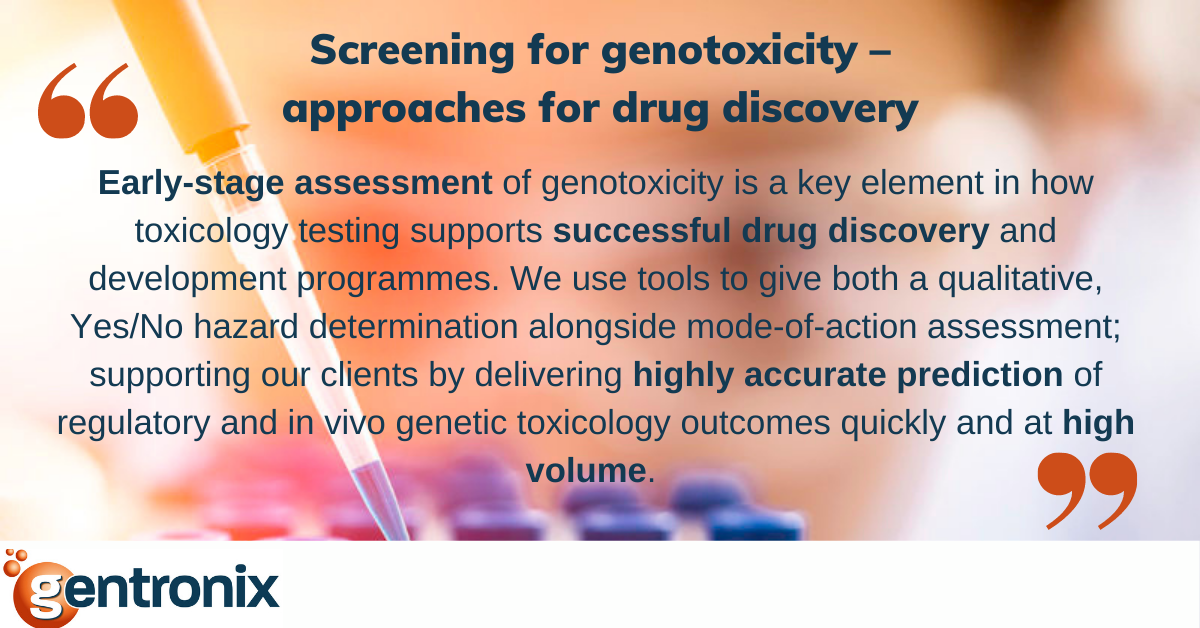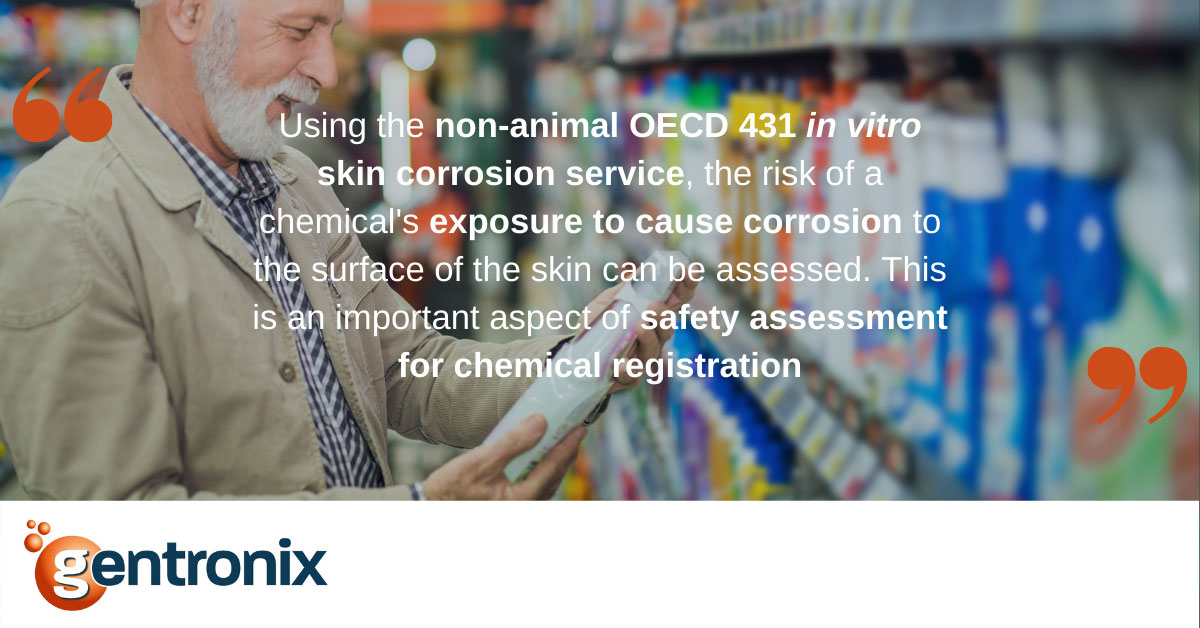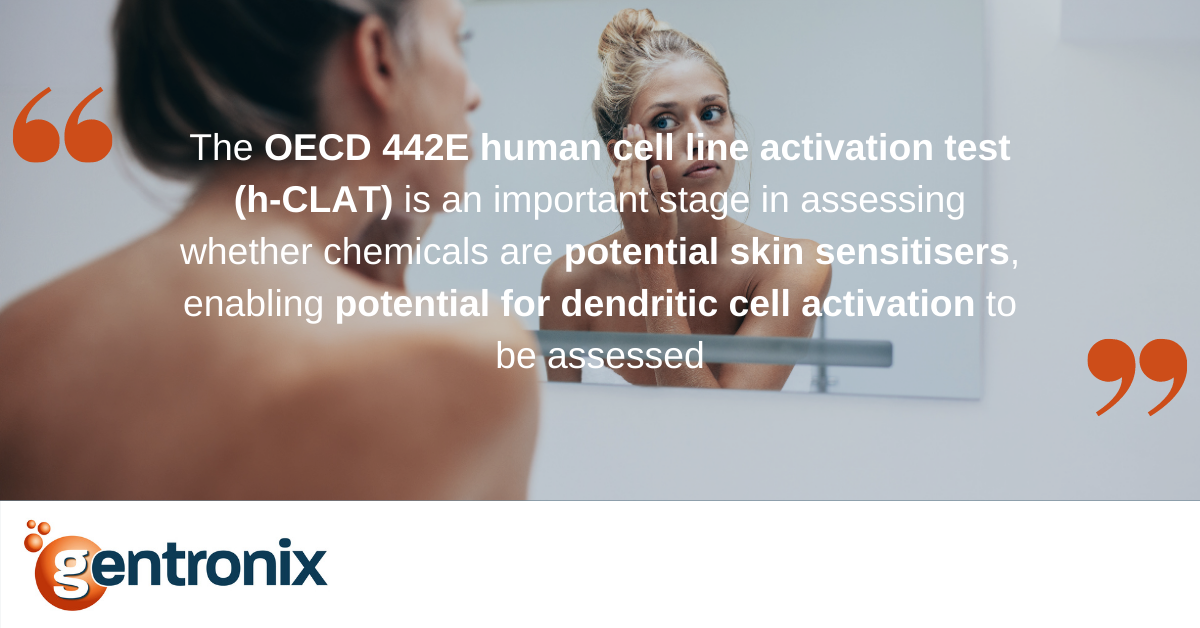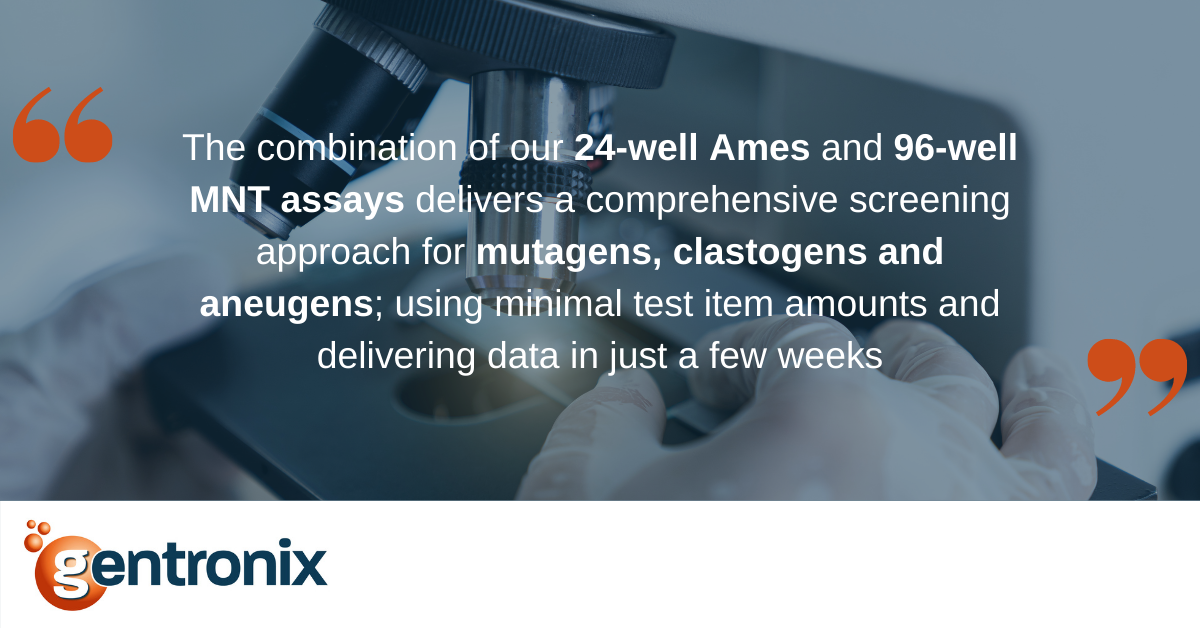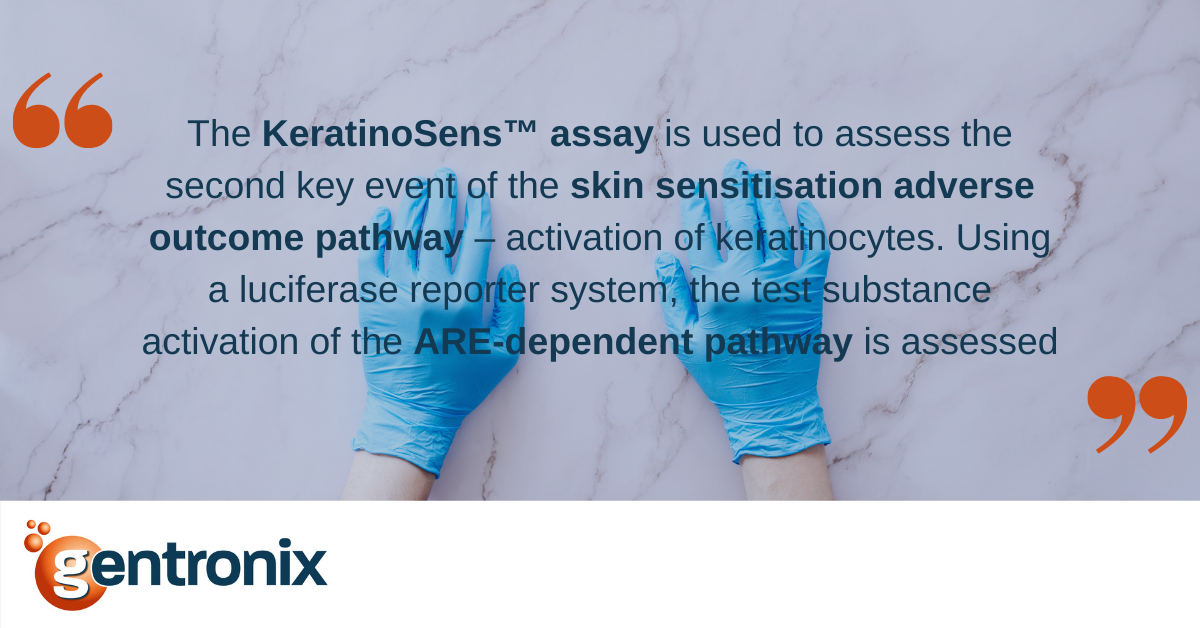Micronucleus assay used in genetic toxicology
Micronucleus assays have been extensively used in genotoxicity assessment for decades. Tests were for many years conducted in vivo in the bone marrow or peripheral blood cells, but it eventually got traction in vitro as well. The adoption of OECD test guideline 487 in 2010 made the in vitro micronucleus assay part of the available battery of in vitro studies for regulatory use. It has largely replaced the in vitro chromosome aberration assay in a few years due to its ability to detect aneugenicity and clastogens. Combined with the Ames OECD 471 test, the in vitro micronucleus is, in some cases, considered sufficient for the genotoxicity assessment of test compounds.
Gentronix moves into micronucleus testing.
Gentronix invented the Greenscreen HC and the Bluescreen HC and originally started the business as a kit provider for these assays, but then realised that there was a market in performing contract testing, particularly for clients that did not operate their labs.
As we looked to grow as a company, it made sense to look at other genotoxicity assays and, of course, ones relevant to our client’s needs. The in vitro micronucleus assay fit the bill, and we dipped our toes in the water with the flow cytometric format of the assay in TK6 cells. This works very well for most compounds and requires only 15 mg for ICH total test item concentrations or 50 mg for ten mM tests (as would be necessary for an OECD 487 study if no cytotoxicity or solubility was limiting).
The next step of Gentronix’s growth was to start to offer Good laboratory practice (GLP) testing services, which we began to work up as we left the Manchester University campus and relocated to Alderley Park. This included a significant recruitment drive, and we hired several members of staff that had previously worked on the Alderley Park site for AstraZeneca or Syngenta. We set up the Ames lab first, with the in vitro micronucleus assay going online to GLP soon after, using human peripheral blood lymphocytes, which are primary human cells.
Following our GLP lymphocyte offering, we started to work on using TK6 cells, primarily for screening and GLP studies. In 2015/2016, we set up the TK6 in vitro micronucleus assay in 96-well plates, allowing us to score the same number of cells as a conventional GLP study but using significantly fewer test items.
Adding mode of action data
The latest evolution of our in vitro micronucleus service offering is incorporating fluorescence in situ hybridisation (FISH). FISH is used to differentiate micronuclei with and without centromeres, and an increase in centric micronuclei indicates aneuploidy; a decrease indicates clastogenicity. Determining whether micronuclei are likely to result from clastogenicity or aneuploidy can help inform project risk, confirm whether effects are related to the chemical’s intended mode of action, or help select risk assessment options.
We set up FISH initially as an addition to our 96-well screening in vitro micronucleus format, essentially using extra wells when setting up the micronucleus study, allowing us to make slides for FISH and score them only if the study was positive for micronuclei. This way, we had the reassurance that the FISH slides were from the same experiment (reducing potential variability) and reducing the time to results.
Increasingly there is a focus on determining whether positive in vitro micronucleus GLP studies are associated with increases or decreases in centric micronuclei. EFSA has prioritised this in their draft guidance document on aneugenicity, so it made sense to include FISH in our GLP offering.
Gentronix offers the following in vitro micronucleus options to suit a range of purposes and stages of product development:
- OECD 487 GLP studies in TK6 cells with the addition of FISH as an option – scored by microscopy
- OECD 487 GLP studies in isolated human lymphocytes – scored by microscopy
- 96-well studies in TK6 cells with the addition of FISH as an option – scored by microscopy
- MicroFlow® in TK6 cells – scored by flow cytometry
If you want more about our in vitro micronucleus services or a quote, don’t hesitate to contact us at info@gentronix.co.uk.


